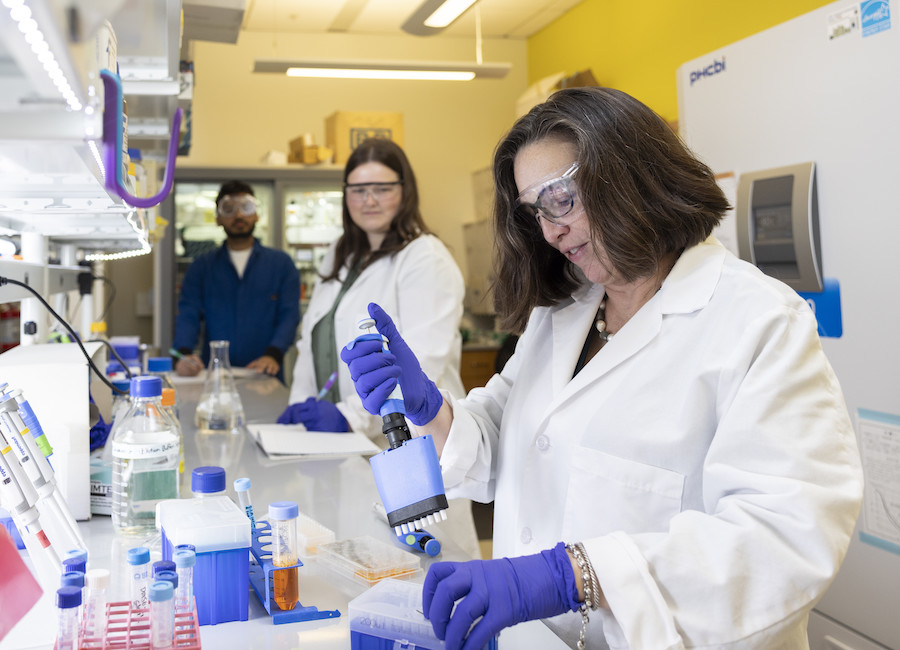

KENNESAW, Ga. | Nov 13, 2023

Equipped with a three-year, $405,650 grant from the National Institutes of Health, Kennesaw State University professor Carol Chrestensen will further investigate the binding process with the help of undergraduate researchers.
“Looking at those questions provides ideas to create treatments for cancers and heart disease, among other things,” said Chrestensen, who teaches biochemistry in KSU’s College of Science and Mathematics. “This grant provides undergraduate students the opportunity to be on the ground floor in asking questions that no one has ever asked before, and that’s a cool place to be.”
A professor at KSU since 2006, Chrestensen studies enzymes called kinases. When human tissues – organs, muscles, blood vessels and more – are formed, kinases interact with another enzyme called nitric oxide synthase 3 (NOS3), Chrestensen said. The interaction changes under some conditions and might play a role in the development of serious diseases.
Chrestensen worked with the late John Salerno, a professor of biochemistry at KSU who died in 2015. Salerno was an expert on NOS3 and speculated that it would bind to another kinase called p38. Chrestensen and Salerno conducted the experiment and found that the two did bind, a process that had been undiscovered to that point.
“Dr. Salerno and I did the experiment in the lab, and then I did the experiment with my students, and I told them that they were the first to learn that these two substances can interact,” she said. “That kind of discovery leads students to think about things differently and ask different questions.”
Since NOS3 is involved in blood pressure regulation and the formation of blood vessels, those protein-protein interactions have wide-reaching implications within the human body. Chrestensen said this research sheds light on conditions such as artery blockage and cancers, like breast cancer, that can spread to other parts of the body.
In addition to purchasing materials for her lab, Chrestensen said the money will go toward paying undergraduates as lab researchers. The grant is part of the NIH’s R15 AREA (Academic Research Enhancement Award) for undergraduate-focused institutions, which fosters Chrestensen’s priority of getting undergraduates involved in research.
“Now we are building up the lab to make lots of protein and begin the assays that we need to do,” she said. “As we get results in, we'll publish papers and then ask new questions.”
– Dave Shelles
Photos by Darnell Wilburn Jr.
A leader in innovative teaching and learning, Kennesaw State University offers undergraduate, graduate, and doctoral degrees to its more than 51,000 students. Kennesaw State is a member of the University System of Georgia with 11 academic colleges. The university's vibrant campus culture, diverse population, strong global ties, and entrepreneurial spirit draw students from throughout the country and the world. Kennesaw State is a Carnegie-designated doctoral research institution (R2), placing it among an elite group of only 8 percent of U.S. colleges and universities with an R1 or R2 status. For more information, visit kennesaw.edu.